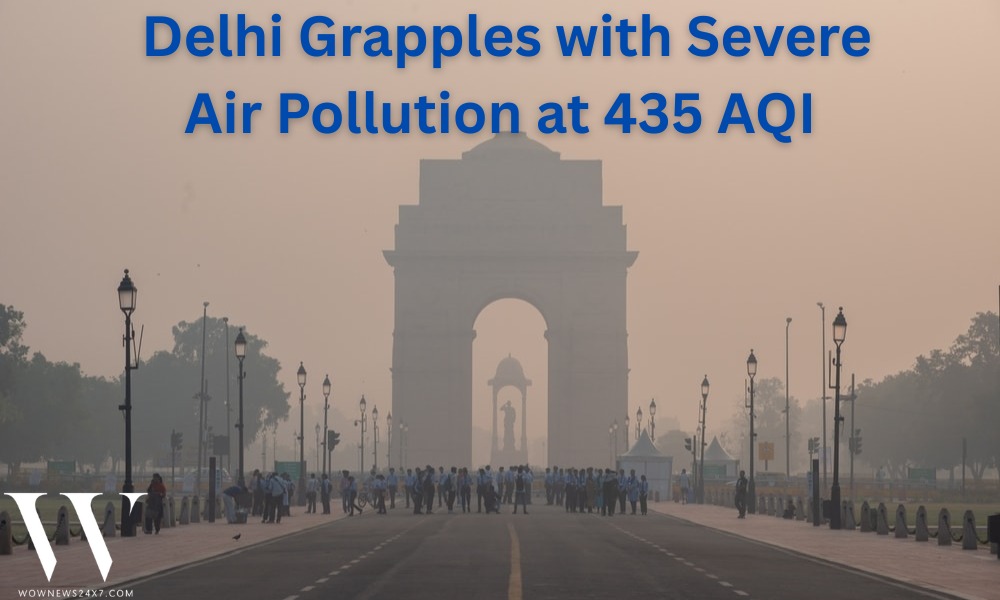Delhi’s air quality has deteriorated to a ‘severe’ level with an AQI (Air Quality Index) reading of 435. This alarming spike poses serious health risks, prompting authorities to activate emergency mitigation measures. Residents are advised to take precautions, including minimizing outdoor activities and using protective masks.
Delhi's air quality has crossed a dangerous threshold, hitting a ‘severe’ AQI level of 435 on Sunday, significantly impacting public health. This surge is primarily driven by factors such as vehicular emissions, crop stubble burning in neighboring states, and stagnant weather conditions worsening pollution dispersion.
Key Highlights
The ‘severe’ AQI level indicates hazardous environmental conditions, disproportionately affecting children, elderly, and those with pre-existing respiratory conditions.
Authorities have implemented the Graded Response Action Plan (GRAP) Stage-II and Stage-III measures, including restrictions on construction activities, increased public transport options, and limiting industrial emissions to curb pollution.
The Delhi government advises residents to avoid outdoor activities, use N95 or similar masks, and monitor real-time air quality updates for health safety.
Environmental agencies are actively monitoring the situation, coordinating with neighboring states to reduce crop burning and promote cleaner alternative farming practices.
Emergency health services have been put on high alert to assist vulnerable populations experiencing pollution-related health issues.
This sharp increase in pollution levels underlines the urgent need for long-term sustainable policies combined with immediate preventive actions to protect Delhi’s population and environment.
Sources: DD News, Hindustan Times, PIB, Al Jazeera, The Tribune.
